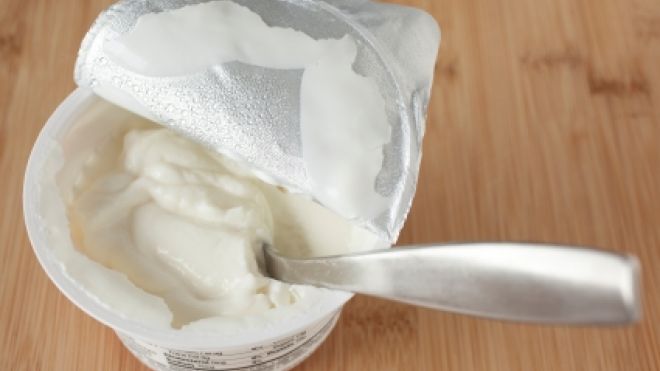
Probiotics claim to support immunity and fix everything from bloat to skin trouble, and they're popping up in all kinds of foods and drinks—more than 500 new products in the last decade.
Clearly lots of people are on board: Sales of anything touting the probiotic promise increased by $1 billion in the United States in the past two years alone. So should you stock up? Well, it's complicated.
Related: Delicious Mediterranean Dishes Under 400 Calories
Yes, probiotics do have some awesome health powers. But to really get how they work, you first need to understand a few things about your body and, well, bugs. 
From the time you're born, millions of bacteria (those bugs) from your mom, food, air and the things you touch start setting up camp in and on your body. 
Related: Tone Up Your Trouble Spots
The mix is called the microbiome, and most of it lives in your colon (happily), where it helps signal your body to digest food, fight pathogens, break down cholesterol and more, Gregor Reid, director of the Canadian Research & Development Centre for Probiotics, said. Animal studies suggest the microbiome may affect blood pressure and even behavior.
Related: 6 Moves To Resize Your Butt and Thighs
Can't believe we're actually saying this, but the microbiome is very trendy right now. There's tons of new research on it: Scientists say it's the next frontier in understanding the human body. 
Certain “good” bacteria strains (aka probiotics) seem to help the body function more efficiently, while “bad” bacteria tax it. And when the balance of the gastrointestinal system is off (blame stress, illness, a poor diet or taking antibiotics), we may be left susceptible to disease-causing organisms and diarrhea. 
So the theory makes sense: If you have microbiome imbalance, ingesting extra good bacteria—found naturally in certain foods like yogurt and sauerkraut and added to others like tea—might help make you healthier.
But you need to make sure you're eating the right stuff. Research suggests taking large doses of certain probiotics—several strains of lactobacillus and bifidobacteria found in fortified yogurts and pills, specifically—may help prevent colds and soothe digestive problems. Plenty of docs recommend these products as natural meds, and they seem to be generally safe for most people.
But there's a catch: The FDA doesn't regulate most probiotics the way it does drugs. Some reports suggest claims about the amount and type of bacteria on product labels aren't always accurate. And many products are never clinically tested for efficacy. So sketchy pills—like ones that combine a bunch of strains experts don't know much about—are on store shelves. 
“A lot of things called probiotics shouldn't be, because they've never been tested in humans,” Reid said.
The bottom line: Probiotic supplements may help prevent colds and ease GI issues, but no need to pop pills every day to balance your microbiome when your diet can do it, too, Dr. David Rakel, director of the University of Wisconsin Integrative Medicine Program. said. 
Have at least three weekly servings of fermented foods—yogurt, kefir, sauerkraut, kimchi—which contain probiotics naturally, Dr. Rakel said. (There's no guarantee fortified sources like cereals and teas will help, so it might not be worth it to shell out the cash.) Finally, fill up on fiber from veggies and whole grains: It helps create a more probiotic-friendly environment in your gut. 
We'll take food over pills any day.
This article originally appeared on Self.com. 
source : http://www.foxnews.com/health/2013/06/14/are-probiotics-miracle-food/